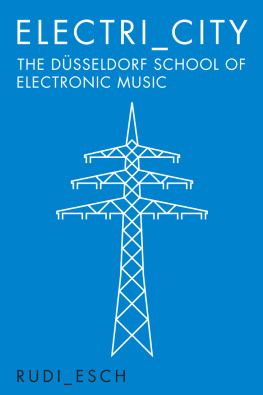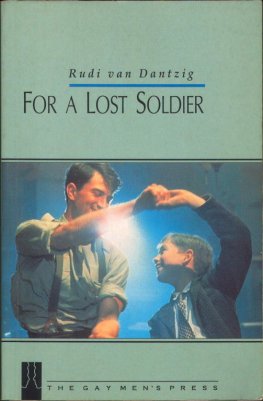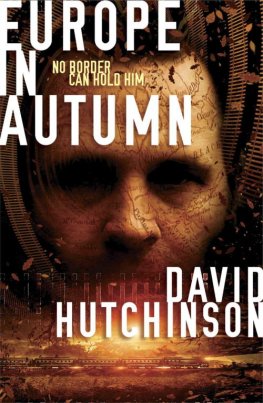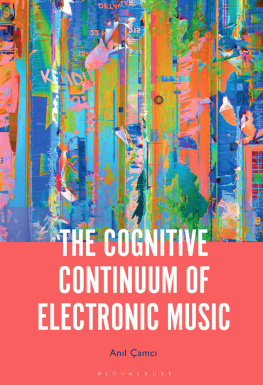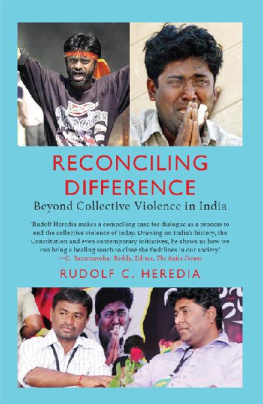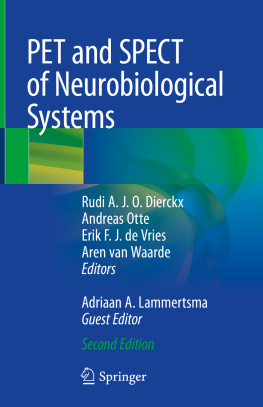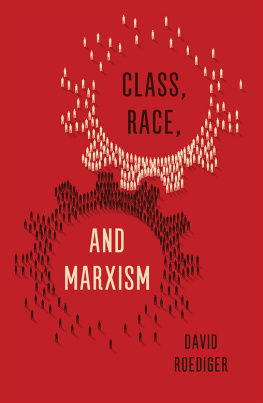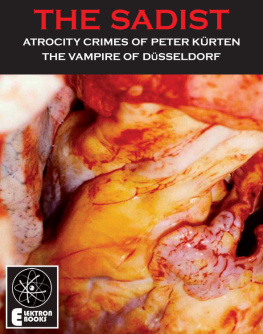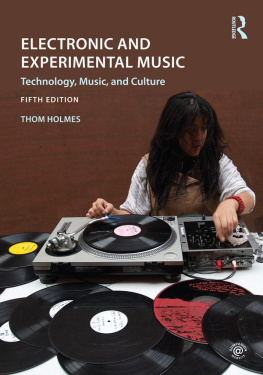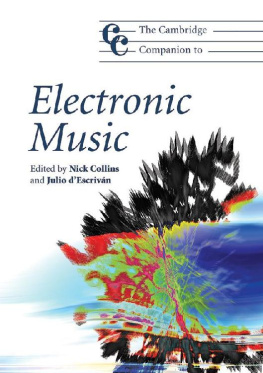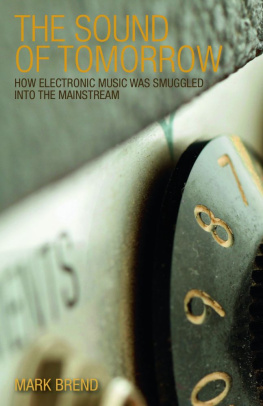Rudi Esch - Electri City: The Düsseldorf School of Electronic Music
Here you can read online Rudi Esch - Electri City: The Düsseldorf School of Electronic Music full text of the book (entire story) in english for free. Download pdf and epub, get meaning, cover and reviews about this ebook. year: 2016, publisher: Omnibus Press, genre: Non-fiction. Description of the work, (preface) as well as reviews are available. Best literature library LitArk.com created for fans of good reading and offers a wide selection of genres:
Romance novel
Science fiction
Adventure
Detective
Science
History
Home and family
Prose
Art
Politics
Computer
Non-fiction
Religion
Business
Children
Humor
Choose a favorite category and find really read worthwhile books. Enjoy immersion in the world of imagination, feel the emotions of the characters or learn something new for yourself, make an fascinating discovery.
- Book:Electri City: The Düsseldorf School of Electronic Music
- Author:
- Publisher:Omnibus Press
- Genre:
- Year:2016
- Rating:5 / 5
- Favourites:Add to favourites
- Your mark:
- 100
- 1
- 2
- 3
- 4
- 5
Electri City: The Düsseldorf School of Electronic Music: summary, description and annotation
We offer to read an annotation, description, summary or preface (depends on what the author of the book "Electri City: The Düsseldorf School of Electronic Music" wrote himself). If you haven't found the necessary information about the book — write in the comments, we will try to find it.
Rudi Esch: author's other books
Who wrote Electri City: The Düsseldorf School of Electronic Music? Find out the surname, the name of the author of the book and a list of all author's works by series.
Electri City: The Düsseldorf School of Electronic Music — read online for free the complete book (whole text) full work
Below is the text of the book, divided by pages. System saving the place of the last page read, allows you to conveniently read the book "Electri City: The Düsseldorf School of Electronic Music" online for free, without having to search again every time where you left off. Put a bookmark, and you can go to the page where you finished reading at any time.
Font size:
Interval:
Bookmark:
Es lebe unsre Welt.
Die Liebe und das Leben.
Long live our world.
Terra nostra Viva!
La Dsseldorf, VIVA Dsseldorf, 1978
Dedicated to the dead.
The music companion, Klaus Dinger and my beloved dad, Walter Esch.
As well as to those who turn Graceland every day into a place of Peace, Love and Understanding. Anschi and Cosi, Leon and Lia.
CONTENTS
ELECTRI_CITY the electronic town. That is Dsseldorf.
Its a great global legend, spanning from Detroit to Tokyo, from London to Madrid, that always refers to Dsseldorf as the origin of electronic music. That is where it all started, on the banks of the tiny river Dssel. Here is the birthplace of electronic music. In the same way that the petite Dssel flows into the mighty river Rhine, it only took a very few inspired sources to create such important and enormous new waves of modern music.
The first electronic sounds created by us were analogous to the etymological origin of the name Dssel, with its meaning of roaring, rushing or thundering. The huge roar that followed when we decided to market our musical ideas in a purely electronic form, together with cover designs that were so clean they could almost be described as austere, was tremendous. We released Autobahn in 1974 that is nineteen hundred and seventy four; half a lifetime ago.
The magical river Rhine, with its heavily populated and industrialised banks, both attracts and incites people at the same time. It seems to harness huge creative powers. The river bed constantly broadens until it flows into the North Sea; similarly the new trends that fuel the said legend broaden and become mainstream: industrial, synth-pop, EBM, techno, house, electronica, ambient, drum n bass, trip-hop, jungle, drone and dubstep. All these styles discard conventional song structures without taking away from their danceability. Based on our music, which concentrated on technology and the then-not-so-widely used computer, musicians and technocrats were able to become artists and pop stars.
Even to me and I was a part of it it sounds almost beyond belief, like some modern day fairy tale. In our rehearsal room, studio and shared flat, a sound was created that would travel the world.
It was a fantastic time. Everything seemed possible. The first synthesisers were instruments that cried out for a new musical path. One didnt have to have a music education to use them. Musical virtuosity would be replaced by a boffin-like hunger for knowledge. Suddenly everyone was able to make music. On the one hand, this had a big influence on our self-image and our music; on the other, it gave us a reputation as nothing more than knob-turners.
That said, you have to admit that there were some brilliant musicians, even in our own group. Did we know what we were putting into motion at the time? I dont think so. Fact is, there was a small group of people, totally independent of each other but with the same background and coincidentally from the same town, who tried to create something entirely new. We consciously broke with the musical tradition of the Allies and were looking for a European identity. We wanted to oppose the superiority of Anglo-American music with something frightfully German, and people loved us precisely for that reason. That was a strange feeling.
It was the days of krautrock, cosmic music and prog rock; of electronic pioneers in Munich, Berlin and Dsseldorf. It was the time of an extra-parliamentary opposition, the Summer Olympics in Munich, and burning warehouses. It was a period of long hair, psychedelic drugs and the pill. An era of student revolutions and rebellion. Back with Uschi Obermaier, Amon Dl, Benno Ohnesorg and Cluster or Can, the Baader-Meinhof Group, David Bowie, Bll, Fassbinder and Visconti exciting times, somewhere between Mogadishu, Mao and the Mahavishnu Orchestra... and amongst all of that Ralf, Florian, Karl and I were getting our hair cut shorter and shorter and were growing more and more self-confident. Finally we did the unthinkable: we bought suits and wore ties.
That is how we managed to leave the largest possible impression during our tour of the UK and the US in 75. Naturally the audience was a little disturbed by our stage show, which was so far removed from the prevalent rock clichs of the day. But all in all we were pleasantly surprised by how well us four krauts were received abroad. In the same way the Americans had earlier introduced rocknroll, swing and blues, thus infecting a whole youthful generation, we had infected a whole generation of English musicians with our sound: Ultravox, OMD, Joy Division, Human League, Heaven 17, Depeche Mode, Visage, Gary Numan. Even David Bowie claimed to have been inspired by bands like Kraftwerk, Neu! and La Dsseldorf.
This book is a first. It doesnt just tell the story of Kraftwerk as the electronic Messiah. It tells the story of Dsseldorf as the cradle of electronic music. As a former member of the electronic quartet, I am flattered by the shortened formula, of course the one that always equates electronic music with Kraftwerk. Naturally Kraftwerk were central and important, but there was a time before and after, people for and against, not to mention the whole surrounding fuss! Musicians like Klaus Dinger, Michael Rother, Eberhard Kranemann, Wolfgang Riechmann and Bodo Staiger were in Dsseldorf; bands like Rheingold, Liaisons Dangereuses and Propaganda had their home here and one cant forget Conny Plank, who discovered a lot of them and produced almost all of them. That is why tracks and traces lead us not only to the Kling Klang Studio, but also to Wolperath, into the Weser Hills and to Wuppertal; to the Ratinger Hof and the big wide world. This book deals with the mindset of a city, an electronic way of life; and the next generation of bands who confidently pointed their sequencers at us, and made music so powerful that they were soon on everyones lips: DAF, Der Plan and Die Krupps.
Rdiger Esch comprehensively follows all of these complex and sometimes intricate trails for the first time. He documents the history of electronic music from the early days in 1970 to the end of the analogue phase in 1986. He doesnt just tell the story of individual bands; rather he stages the story of a town as a multi-voiced canon. It is only right that he lets those who made and experienced this history tell it in their own words. We meet some of the obvious and not so obvious protagonists, the visionaries and doers, sophisticates, libertines, loudmouths and rockers. The pioneers, boffins, dandies, fans and holy lunatics stirred together into a colourful mix, sometimes evident even in one person.
Great myths are invariably a mix of fact and fiction, of genuine portrayal and hyperbole. Esch dissects carefully. Some Dsseldorf bands at the height of their career seemed powerful and superior when viewed from afar; but when examined closely under the magnifying glass they all get cut down to size. He deals with some of the smaller stories that in the presence of the mythological would easily have faded into the ether. It is possible that the people of Dsseldorf are as much in love with grand gestures as they are mawkishly attached to their native town. There are bands who treat their place of origin as a gift; so much so that they feel obliged to carry the reference to their town in their name: La Dsseldorf. Besides all that is grand, its the village-like feel, and not the provincial, that makes living in my hometown so attractive.
The town and the omnipresence of the Art Academy, combined with the cultural activity of artists with names to be savoured Beuys and Richter, Lpertz and Immendorff offered the backdrop for many bands who became internationally successful. One feels the modernistic objectivity and thoroughness, which are appreciated abroad and usually identified as typically German, come easy in Dsseldorf.
Next pageFont size:
Interval:
Bookmark:
Similar books «Electri City: The Düsseldorf School of Electronic Music»
Look at similar books to Electri City: The Düsseldorf School of Electronic Music. We have selected literature similar in name and meaning in the hope of providing readers with more options to find new, interesting, not yet read works.
Discussion, reviews of the book Electri City: The Düsseldorf School of Electronic Music and just readers' own opinions. Leave your comments, write what you think about the work, its meaning or the main characters. Specify what exactly you liked and what you didn't like, and why you think so.

